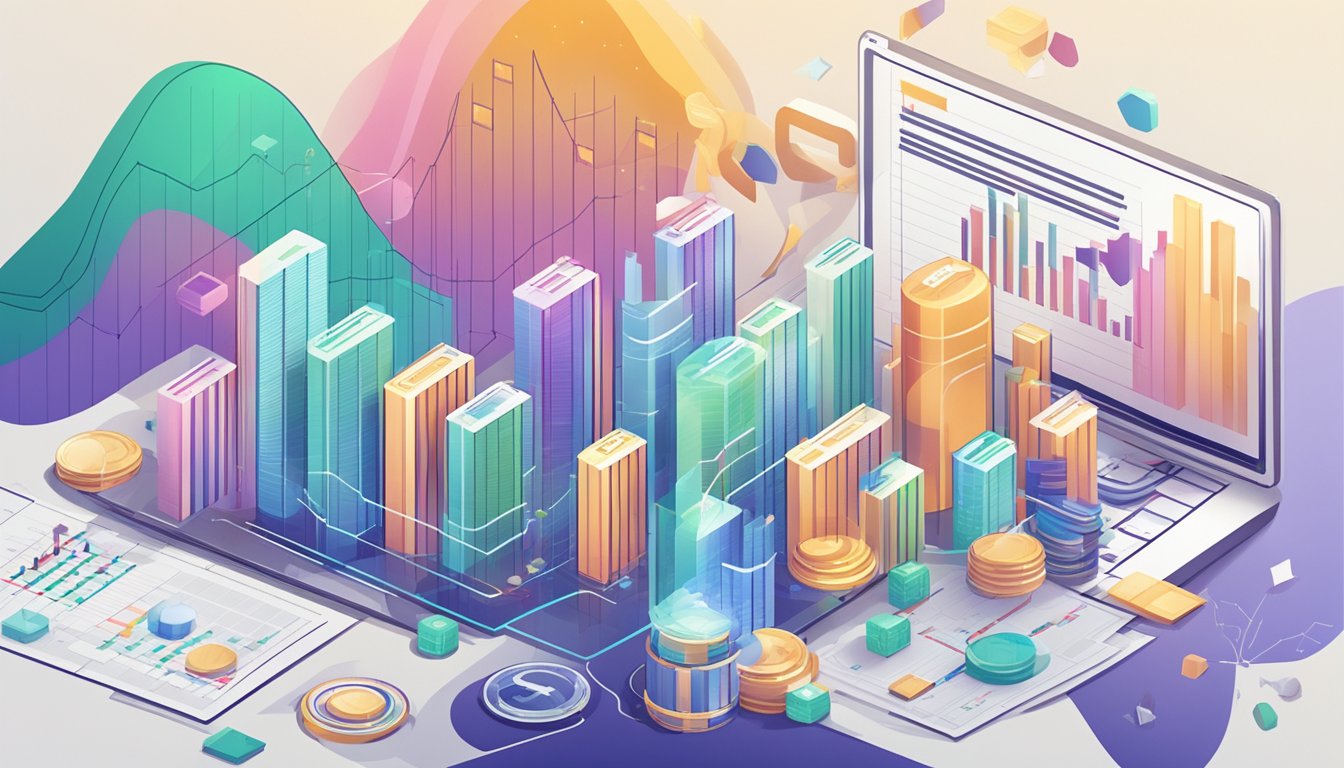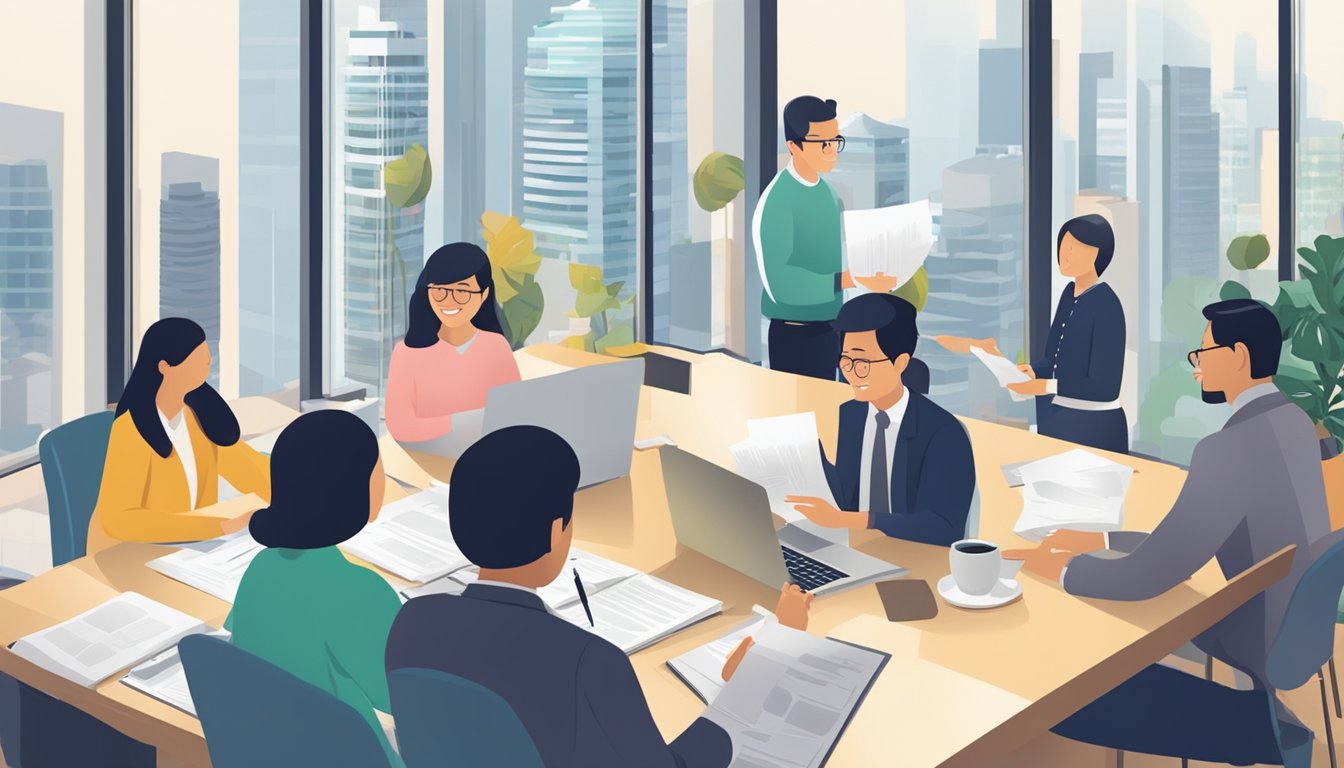If you’re a shareholder in a Singaporean company, you may have heard of share buybacks. Share buybacks, also known as share repurchases, occur when a company buys back its own shares from the market. This process can have a significant impact on the company’s financials, as well as its shareholders.

In Singapore, share buybacks are governed by the Companies Act, which sets out the rules and procedures that companies must follow. These rules include limits on the amount of shares that can be bought back, as well as the price that can be paid for them. Shareholders must also be notified of the buyback, and the company must file a notice with the Accounting and Corporate Regulatory Authority (ACRA).
Overall, share buybacks can be a useful tool for companies looking to manage their capital structure and return value to shareholders. However, they can also be a sign that a company is struggling to find profitable investment opportunities, or that management is not using capital effectively. As a shareholder, it’s important to understand the strategic implications and financial considerations of share buybacks, and to monitor your investments accordingly.
Key Takeaways
- Share buybacks occur when a company buys back its own shares from the market.
- Singaporean companies must follow the rules and procedures set out in the Companies Act when conducting share buybacks.
- Share buybacks can be a useful tool for companies, but can also be a sign of underlying issues.
Fundamentals of Share Buybacks in Singapore

If you are a shareholder or a company in Singapore, you may have heard about share buybacks or repurchases. This is a process where a company purchases its own shares from the market, either to hold as treasury shares or to cancel them. In this section, we will discuss the legal framework and SGX regulations, benefits of share buybacks for companies and shareholders, and types of share buybacks in Singapore.
Legal Framework and SGX Regulations
The legal framework for share buybacks in Singapore is governed by the Companies Act, Cap. 50, and the Securities and Futures Act, Cap. 289. The Singapore Exchange (SGX) also has regulations that companies must comply with when conducting share buybacks.
Before a company can conduct a share buyback, it must obtain approval from its shareholders at a general meeting through a special resolution. The company must also file a notice with the Accounting and Corporate Regulatory Authority (ACRA) and the SGX.
Benefits of Share Buybacks for Companies and Shareholders
There are several benefits of share buybacks for companies and shareholders. For companies, share buybacks can improve their financial ratios, such as earnings per share and return on equity, by reducing the number of outstanding shares. It can also signal to the market that the company believes its shares are undervalued.
For shareholders, share buybacks can increase the value of their remaining shares by reducing the supply of shares in the market. It can also provide an opportunity for shareholders to sell their shares back to the company at a premium.
Types of Share Buybacks in Singapore
In Singapore, there are three types of share buybacks: off-market purchase, selective off-market purchase, and contingent purchase contract.
An off-market purchase is when a company purchases its own shares through a private agreement with a shareholder or a group of shareholders. A selective off-market purchase is when a company purchases its own shares from a specific group of shareholders, such as employees or directors. A contingent purchase contract is when a company enters into an agreement to purchase its own shares at a future date, subject to certain conditions.
In conclusion, share buybacks can provide several benefits for companies and shareholders in Singapore. However, it is important for companies to comply with the legal framework and SGX regulations when conducting share buybacks.
Strategic Implications and Financial Considerations

When considering share buybacks, there are a number of strategic implications and financial considerations that need to be taken into account. In this section, we will explore some of the key factors to keep in mind.
Impact on Earnings Per Share (EPS) and Dividends
One of the most important considerations when it comes to share buybacks is the impact they can have on earnings per share (EPS) and dividends. When a company buys back its own shares, it reduces the number of shares outstanding. This means that the earnings of the company are spread across fewer shares, which can result in an increase in EPS. This can be a positive development for shareholders, as it can lead to an increase in the value of their shares.
However, it is important to note that share buybacks can also have an impact on dividends. When a company buys back its own shares, it is effectively returning capital to its shareholders. This means that there may be less money available for dividends, which can be a concern for investors who rely on regular dividend payments.
Share Buybacks and Company Valuation
Another important consideration when it comes to share buybacks is their impact on company valuation. When a company buys back its own shares, it is effectively reducing the number of shares available on the market. This can lead to an increase in the value of the remaining shares, as there are fewer shares available for investors to buy.
However, it is important to note that share buybacks can also have a negative impact on company valuation. If a company is buying back its own shares at a price that is higher than their true value, this can lead to a decline in the overall value of the company.
Managing Excess Capital and Shareholder Equity
Finally, share buybacks can be an effective way for companies to manage excess capital and shareholder equity. If a company has excess capital that it is not using effectively, it can use this capital to buy back its own shares. This can help to increase the value of the remaining shares, as well as improve the return on equity (ROE) for shareholders.
However, it is important to note that share buybacks can also have a negative impact on the balance sheet of a company. If a company is buying back its own shares at a price that is higher than their true value, this can lead to a decline in the financial ratios of the company, as well as a decline in the overall value of the company.
In conclusion, share buybacks can be an effective tool for managing excess capital and shareholder equity, as well as improving the value of remaining shares and EPS. However, it is important to carefully consider the financial implications of share buybacks, as well as their impact on company valuation and dividends. By doing so, companies can make informed decisions about whether share buybacks are the right strategy for their business.
Frequently Asked Questions

How does share buyback affect a company’s financial statements in Singapore?
When a company buys back its own shares, it reduces the number of outstanding shares in the market, which can increase the earnings per share (EPS) and improve the financial ratios. However, it also reduces the company’s cash reserves and assets, which can impact its liquidity and ability to invest in growth opportunities.
What are the legal requirements for share buybacks in private companies in Singapore?
Private companies in Singapore must comply with the provisions of the Companies Act and the regulations set by the Accounting and Corporate Regulatory Authority (ACRA). The company must have sufficient distributable profits or capital to finance the share buyback, and it must follow the procedures for notifying the shareholders and filing the relevant documents with ACRA.
How does a capital reduction compare to a share buyback in Singapore?
A capital reduction involves reducing the company’s share capital by cancelling or repaying the share capital to the shareholders. This is different from a share buyback, which involves buying back the shares from the shareholders. Both methods can improve the company’s financial ratios and return on equity (ROE), but they have different legal and tax implications.
What happens to shares after they are bought back by a company in Singapore?
When a company buys back its own shares, it can either cancel the shares or hold them as treasury shares. If the shares are cancelled, the company’s share capital and voting rights will be reduced accordingly. If the shares are held as treasury shares, the company can reissue them or sell them in the future, but they will not have voting rights.
What is the maximum limit for share buybacks on the Singapore Exchange (SGX)?
The SGX has set guidelines for share buybacks, which limit the amount of shares a company can buy back to 10% of its total issued shares. The company must also comply with the SGX’s rules on insider trading and market manipulation, and it must disclose the details of the share buyback to the public.
What are the stamp duty implications for conducting a share buyback in Singapore?
Stamp duty is payable on the share transfer document when you acquire shares. The rate of stamp duty depends on the value of the shares and the type of transaction. If the shares are bought back by the company, stamp duty is not payable as the transaction is exempted. However, if the shares are cancelled or held as treasury shares, stamp duty may be payable on the transfer document.




